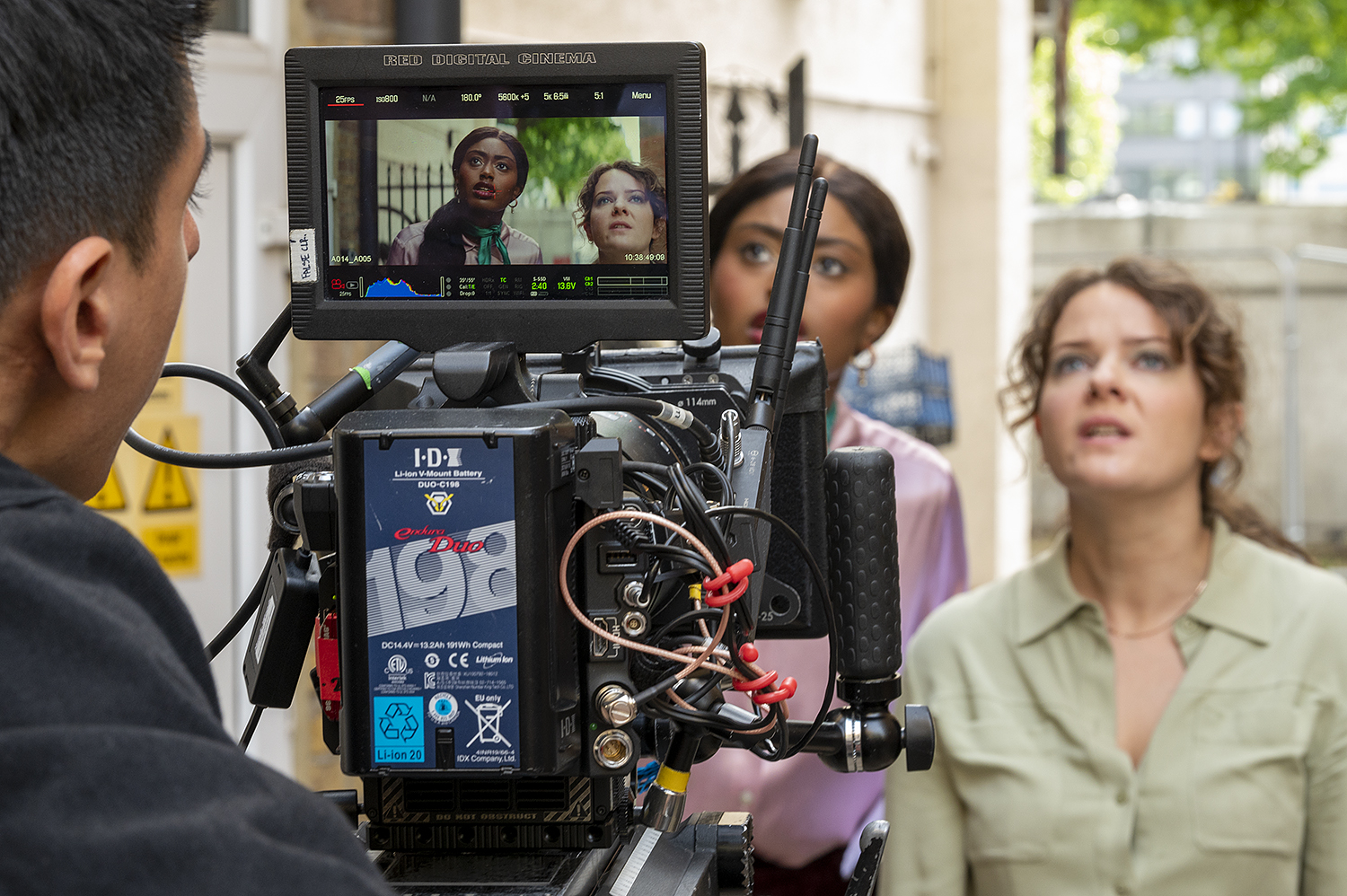- ...
Postgraduate Studentships - Search for funding opportunities.
Voice Studies courses at Central are nationally and internationally renowned, giving a specialised education in the study and practice of the spoken voice. These courses are for graduates of appropriate disciplines who wish to follow a career in voice teaching and who seek specialised study and practice in voice and speech.
Study with internationally renowned voice tutors and professionals
Learn pedagogical skills for the teaching of voice on this world-leading course
Network with actors, accent coaches, speech therapists and singers and undertake education and industry placements.
Cutting edge practice and thinking is the norm at Central. Exciting research activity ongoing in this area and led by Dr Duska Radosavljevic.
An understanding of voice informed by appropriate work experience of at least two years is normally an essential prerequisite, or a degree (or equivalent) in a subject which has included an element of voice and speech studies. Graduates of other disciplines will be considered if they can provide evidence of previous training in voice and/or speech. You will also normally be required to have the equivalent of 20 hours teaching experience in the field of voice and/or performance-related subjects. Applicants without an undergraduate degree (or equivalent), but who have professional experience working with voice for at least two years, e.g. actors and directors, will be considered for interviews for non-standard entry. An offer will normally only be made after interview.
A top-up year for those with an exciting MA or PGDip in this subject is available.
We particularly encourage applications from groups currently under-represented in higher education, such as students with disabilities and members of Black, Asian and Minority Ethnic groups. Find out more information on Central’s commitment to equality and diversity.
English Language Requirements
Applicants for whom English is not their first language are required to prove their English language proficiency by gaining an overall score of 7.0 in an IELTS test. We do accept equivalent English language qualifications. Applicants are advised to gain this certification as early as possible and more information can be found through the English Language Requirements page.
Interviews
If you are selected for an interview for a place on the MA or MFA Voice Studies course, we will require you to provide/ prepare the following ahead of an online interview:
Please wear clothes suitable for a voice/movement session.
The interview process will also give you an opportunity to find out more about the course and the school.
International Interviews
Each year Central hosts a number of interviews outside of the UK, with a team of tutors from Central travelling to meet applicants. The international interviews are designed to replicate the London-based interview experience in every aspect (other than a tour of our site!).
For fees and funding options, please visit website to find out more
Graduate employment and career pathways include:
In the first year of the MFA, you join the MA students for terms one to three of the course. The MFA then extends into a second year, beginning in October, which involves a mix of workplace attachments, mentorships and observed practice, in close liaison with members of the related industries. You are encouraged to specialise in one or more directions, building on the first year’s teaching.
Term one develops awareness of personal and professional needs and gives a foundation in practical skills, related academic disciplines, vocal pedagogy and research methods for the more applied work that follows.
Term two builds on the previous term by relating acquired knowledge and practical experience to the needs of others and seeks to develop growing confidence and abilities. Practical experience of teaching, both of groups and of individuals in institutions where voice work is relevant, begins in this term.
Term three consolidates the work already done, extends the teaching experience in a variety of contexts, and allows for a deepening of thought about voice as a field of study. It includes advice on preparation for a professional career.
Term four of the MA is focused entirely on the preparation and submission of a portfolio or dissertation.
The MFA second year widens your opportunities to develop voice knowledge within a variety of professional contexts in which pertinent questions can be asked, protocols tested and new structures suggested. This involves a combination of workplace attachments, mentorships and reflective observation where appropriate. You are expected to undertake tutorials and occasional seminars throughout the year, although these may be via Skype, as part of an ongoing process of pedagogical reflection and engagement leading to the submission of a final dissertation and reflective pedagogical documentation.
The MFA offers a further embedding of skills and concepts learnt during the first year. In some countries the MFA is more recognised, particularly for those interested in teaching, or researching in a higher education environment.
An MFA top-up year for those with an existing MA in this subject is also available.
Assessments
During the first three terms of both courses, assessment is through written work, practical projects and teaching practice.
In the fourth term of the MA, you complete a dissertation or portfolio focusing on your specialist area of enquiry arising from the work of the course.
In the MFA second year, assessment is by means of documents based on field experience and related research.

The Royal Central School of Speech and Drama is a small specialist institution of the theatrical and performing arts within the University of London....